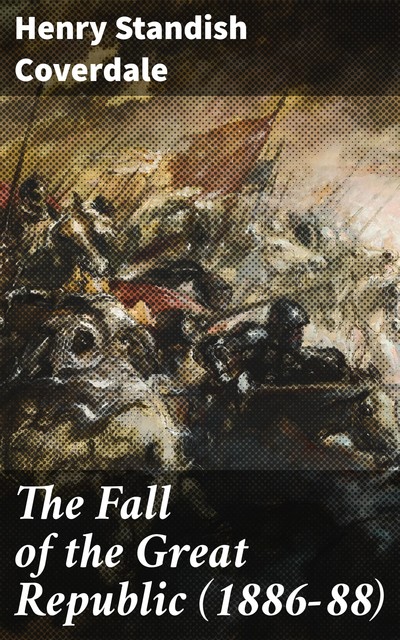Henry Standish Coverdale's “The Fall of the Great Republic” is a profound exploration of the political and social dynamics of the late 19th century, articulated through a compelling narrative style that intertwines fact and commentary. Written during a time marked by rapid industrialization and socio-political upheaval in America, Coverdale dissects the complexities of republican governance, the erosion of civic virtue, and the implications of economic disparity. His literary approach melds elements of historical analysis and speculative fiction, providing a prophetic lens through which readers can examine the potential decline of democratic institutions. With vivid imagery and an engaging prose style, the book serves as both a cautionary tale and a timeless manifesto against the pitfalls of complacency in governance. Coverdale, an astute observer of his contemporaries and a critic of the ethical decline he witnessed, was influenced by his background in history and politics. His position as a social commentator during this transformative period equipped him with the insight necessary to tackle the pressing issues of his day. Coupled with a deep-seated concern for the future of democracy, Coverdale'Äôs writings reflect his desire to inspire reform and bolster public engagement in the political process. I wholeheartedly recommend “The Fall of the Great Republic” to readers interested in American history, political theory, or social critique. This book not only illuminates the challenges faced by the Republic but also serves as an enduring reminder of the responsibilities of citizenship. Coverdale'Äôs work invites reflection on the fragility of democratic institutions and presents a compelling case for proactive civic engagement, making it an essential read for anyone concerned with the trajectory of modern democracy.


